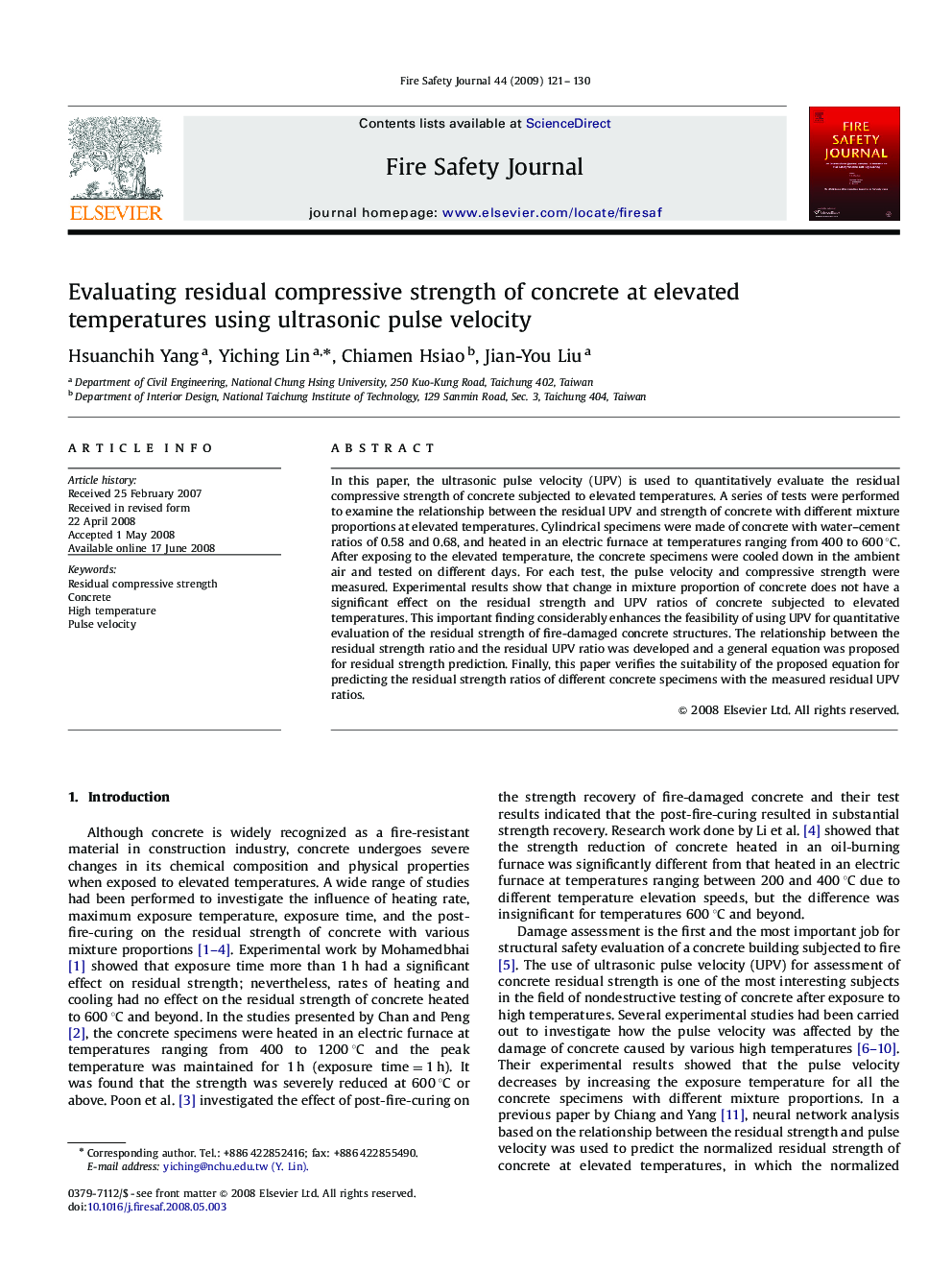| Article ID | Journal | Published Year | Pages | File Type |
|---|---|---|---|---|
| 270276 | Fire Safety Journal | 2009 | 10 Pages |
In this paper, the ultrasonic pulse velocity (UPV) is used to quantitatively evaluate the residual compressive strength of concrete subjected to elevated temperatures. A series of tests were performed to examine the relationship between the residual UPV and strength of concrete with different mixture proportions at elevated temperatures. Cylindrical specimens were made of concrete with water–cement ratios of 0.58 and 0.68, and heated in an electric furnace at temperatures ranging from 400 to 600 °C. After exposing to the elevated temperature, the concrete specimens were cooled down in the ambient air and tested on different days. For each test, the pulse velocity and compressive strength were measured. Experimental results show that change in mixture proportion of concrete does not have a significant effect on the residual strength and UPV ratios of concrete subjected to elevated temperatures. This important finding considerably enhances the feasibility of using UPV for quantitative evaluation of the residual strength of fire-damaged concrete structures. The relationship between the residual strength ratio and the residual UPV ratio was developed and a general equation was proposed for residual strength prediction. Finally, this paper verifies the suitability of the proposed equation for predicting the residual strength ratios of different concrete specimens with the measured residual UPV ratios.
